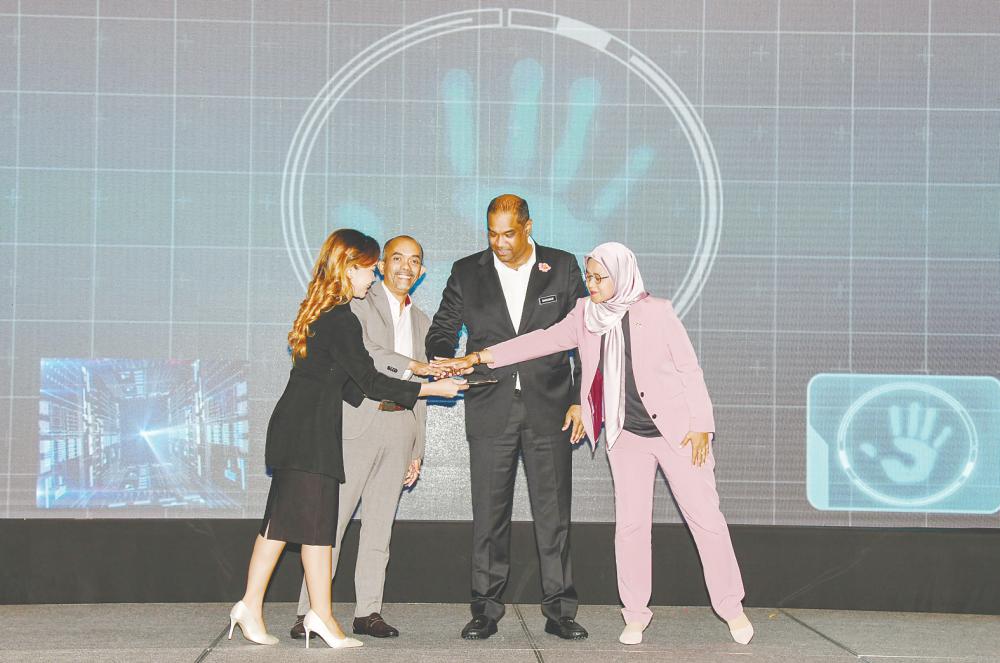KUALA LUMPUR: Small Medium Enterprise Development Bank Malaysia Bhd (SME Bank) targets RM10 billion in sustainable financing and RM1 billion in green transition financing through its Sustainability Roadmap 2.0, a seven-year plan to align with the nation’s vision of achieving carbon-neutral operations by 2030.
Acting group president and CEO Datuk Dr Mohammad Hardee Ibrahim said this sustainable financing will be anchored by the bank’s innovative financing propositions, particularly the RM100 million Dana Kelestarian mandated to SME Bank as announced in Budget 2025.
“Sustainability Roadmap 2.0 represents the next phase in SME Bank’s journey towards a more sustainable business model.
“As a progressive development financial institution, Sustainability Roadmap 2.0 also aligns with policies issued by Bank Negara Malaysia, including Climate Risk Management and Scenario Analysis. This further reinforces SME Bank’s commitment to empowering the micro SME segment, helping them transition to more sustainable business practices while contributing to the nation’s economic growth.
“The primary focus of Roadmap 2.0 is to reduce carbon emissions, specifically by cutting Scope 1 and Scope 2 emissions related to fuel and electricity usage,“ he said at the launch of the roadmap today.
Mohammad Hardee said Sustainability Roadmap 2.0 follows the successful completion of SME Bank’s initial three-year Sustainability Roadmap 1.0 from 2021 to 2023.
Sustainability Roadmap 1.0 culminated in more than RM5.89 billion in approved sustainable financing across key affirmative segments, accounting for about 95% or equivalent to RM6.17 billion of the bank’s total approval for 2022 and 2023.
“We are confident that Sustainability Roadmap 2.0 can fulfil SME Bank’s vision of achieving carbon-neutral operations by 2030, in alignment with the government’s goal of reaching Net Zero Carbon by 2050,“ Mohammad Hardee said.
Deputy Entrepreneur Development and Cooperatives Ninister Datuk Seri Ramanan Ramakrishnan officiated at the event and said the initiative supports the nation’s unified efforts to drive a resilient and sustainable economy.
“From the government’s perspective, particularly under the Ministry of Entrepreneur Development and Cooperatives (Kuskop), initiatives like Sustainability Roadmap 2.0 align with the country’s commitment to integrate sustainability into all economic sectors.
“Kuskop, in collaboration with SME Bank, took early steps to answer the government’s call to promote the Net Zero Carbon agenda by introducing the Sustainability Incentive Scheme, launched in 2023 with an allocation of RM10 million, aimed at enhancing the competitiveness of the micro SME segment.
“The government views such initiatives as essential to the Madani Economy framework, where sustainable development is a national goal and a strategy to secure long-term prosperity for all citizens,“ he said.
Ramanan said the launch of SME Bank’s Sustainability Roadmap 2.0, aiming for carbon-neutral operations by 2030, is a significant step forward in strengthening Malaysia’s role as a country committed to the Net Zero Carbon agenda by 2050. “This effort also reinforces our position among Asean nations as a sustainable and green financing leader.”
SME Bank chief sustainability officer Zakiah Mat Esa said the unveiling of Sustainability Roadmap 2.0 sets a clear path for the bank’s sustainability journey and is anchored on three phases.
“The first phase focuses on alignment with the regulatory requirements, phase two will spearhead the integration of sustainability practices into the bank’s operations, and phase three will see the optimisation and enhancement of sustainability initiatives for maximum impact and efficiency.
“All these will support SME Bank’s goal to achieving carbon-neutral operations by 2030, which aims to reduce fuel gradually consumption and electricity usage emissions throughout the seven years,“ she said.
In August 2021, SME Bank issued its first RM500 million sustainability sukuk, the first ever issued by a development financial institution in Malaysia. Subsequently, the second tranche amounting to RM500 million was issued in August 2022, and the third tranche amounting to RM1 billion in May 2023.









